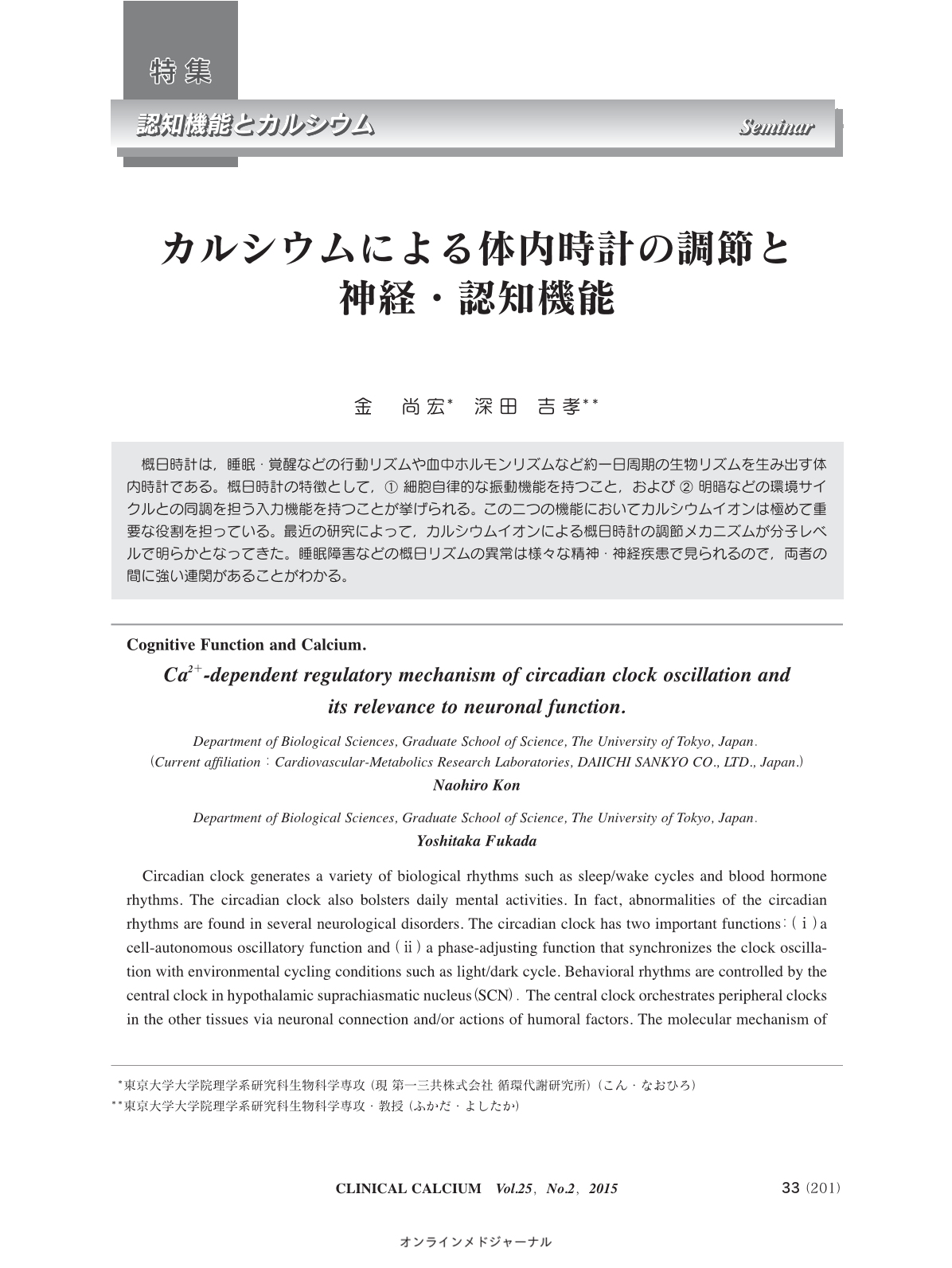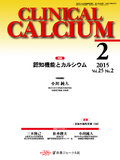Japanese
English
- 有料閲覧
- Abstract 文献概要
- 1ページ目 Look Inside
- 参考文献 Reference
概日時計は,睡眠・覚醒などの行動リズムや血中ホルモンリズムなど約一日周期の生物リズムを生み出す体内時計である。概日時計の特徴として,〈1〉 細胞自律的な振動機能を持つこと,および 〈2〉 明暗などの環境サイクルとの同調を担う入力機能を持つことが挙げられる。この二つの機能においてカルシウムイオンは極めて重要な役割を担っている。最近の研究によって,カルシウムイオンによる概日時計の調節メカニズムが分子レベルで明らかとなってきた。睡眠障害などの概日リズムの異常は様々な精神・神経疾患で見られるので,両者の間に強い連関があることがわかる。
Circadian clock generates a variety of biological rhythms such as sleep/wake cycles and blood hormone rhythms. The circadian clock also bolsters daily mental activities. In fact, abnormalities of the circadian rhythms are found in several neurological disorders. The circadian clock has two important functions:(i)a cell-autonomous oscillatory function and(ii)a phase-adjusting function that synchronizes the clock oscillation with environmental cycling conditions such as light/dark cycle. Behavioral rhythms are controlled by the central clock in hypothalamic suprachiasmatic nucleus(SCN).The central clock orchestrates peripheral clocks in the other tissues via neuronal connection and/or actions of humoral factors. The molecular mechanism of the cell-autonomous clock is based on transcriptional feedback regulation of clock genes by their encoded products. Ca2+is essential for not only the light response of the clock but also the cell autonomous oscillation mechanism. This article provides an overview of recent progress in studies of Ca2+-dependent regulatory mechanism of the molecular clockwork.



